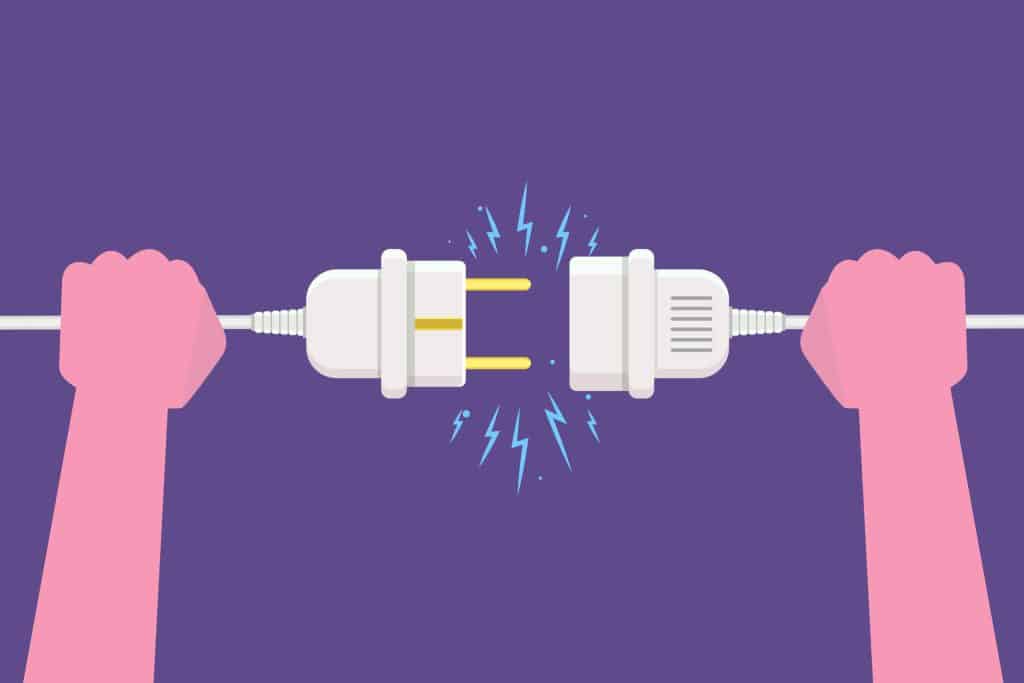The Importance of Unplugging From Digital Media to Recharge
Natalie Brooks August 4, 2025
In today’s hyper-connected world, the constant bombardment of notifications, emails, and social media updates can make it difficult to escape the digital vortex. Many of us are glued to our screens, whether it’s for work, social media, or entertainment. However, the negative effects of excessive screen time are becoming increasingly apparent. Mental fatigue, burnout, and reduced productivity are common consequences of too much time spent in front of digital devices. This is where the practice of unplugging from digital media to recharge becomes essential. Taking regular breaks from screens not only helps restore mental health but also boosts productivity, creativity, and overall well-being.

The Digital Detox Trend: A Necessary Shift
Over the past few years, a growing trend has emerged: digital detoxing. This trend encourages individuals to disconnect from their devices for a certain period to reclaim their time and mental space. According to the American Psychological Association, constant exposure to screens can lead to stress and anxiety. In fact, research has shown that social media, in particular, can contribute to feelings of loneliness, inadequacy, and even depression (Fuchs, 2020). Disconnecting from these sources, even for a short period, can help alleviate these symptoms and give our brains a much-needed rest.
A digital detox doesn’t necessarily mean completely abandoning technology. Instead, it focuses on reducing screen time, especially on social media platforms and mindless browsing. For many people, taking intentional breaks from screens can help reset their mind, improve their sleep quality, and make room for more meaningful interactions.
The Cognitive and Emotional Benefits of Unplugging
Unplugging from digital media offers several cognitive and emotional benefits. First and foremost, it helps reduce the mental overload that screens can cause. Studies show that constant digital engagement can lead to attention fragmentation, making it harder to focus on tasks and retain information (Rosen, 2018). By taking breaks from screens, we give our brains the chance to process information and rest, improving overall cognitive function.
Beyond mental clarity, taking time off from digital media also has profound emotional benefits. Research indicates that unplugging helps improve mood and reduces stress levels. When people step away from their devices, they experience fewer instances of “comparison anxiety,” which often arises from viewing others’ curated lives on social media (Fuchs, 2020). Disconnecting allows individuals to focus on their own lives, promoting a sense of well-being and contentment.
Moreover, digital detoxing can improve emotional intelligence by allowing individuals to reconnect with their own feelings. In today’s digital age, many individuals are so immersed in online communication that they neglect face-to-face interactions. Taking a break from the screen encourages people to spend more time with family and friends, fostering deeper emotional connections and enhancing social skills.
The Impact on Sleep and Physical Health
One of the most immediate benefits of unplugging is the positive impact on sleep. The blue light emitted by screens interferes with the production of melatonin, a hormone that regulates sleep (Harvard Medical School, 2020). Excessive screen time, especially before bed, can significantly disrupt sleep patterns, leading to difficulties falling asleep and staying asleep.
By reducing screen exposure, particularly in the evening, individuals can improve their sleep quality. This is particularly crucial for overall health, as inadequate sleep is linked to numerous health issues, including obesity, cardiovascular disease, and weakened immune function (Harvard Medical School, 2020). Moreover, quality sleep plays an essential role in mental clarity, productivity, and emotional regulation.
Another benefit of disconnecting from digital devices is the increase in physical activity. When individuals take breaks from their screens, they often turn to other activities such as going for a walk, exercising, or simply relaxing. This reduction in sedentary behavior has direct benefits for physical health, including better posture, improved cardiovascular health, and increased energy levels.
How to Unplug Effectively
Unplugging doesn’t require a drastic overhaul of one’s lifestyle. It can be as simple as setting boundaries around screen time. Here are some effective ways to unplug:
- Set Screen Time Limits: Many devices now come with built-in features that allow users to set limits on app usage or overall screen time. Setting these limits can help reduce mindless scrolling.
- Designate Screen-Free Zones: Create spaces in your home where devices are not allowed, such as the bedroom or dining room. This can help improve sleep quality and encourage more meaningful interactions with loved ones.
- Digital Sabbaticals: Consider taking a full day or weekend away from all digital devices, or at least from non-essential devices such as social media and entertainment apps. These sabbaticals can offer a refreshing break and allow time for self-reflection.
- Engage in Offline Activities: Replace screen time with activities that nourish your mind and body, such as reading, cooking, exercising, or spending time outdoors.
- Mindful Technology Use: Rather than mindlessly scrolling, be intentional about the time spent on devices. Set specific goals for your device use, such as using it only for work or educational purposes.
The Importance of Regular Recharging
Incorporating regular digital detoxes into your routine is essential for long-term wellness. With the rise of remote work, flexible schedules, and constant connectivity, the lines between work and personal life are increasingly blurred. It is all too easy to fall into the trap of checking emails late at night or scrolling through social media during work breaks. However, creating boundaries around digital usage is crucial for maintaining mental and emotional well-being.
By committing to regular breaks from screens, individuals can improve their mental clarity, enhance emotional well-being, and foster healthier physical habits. In today’s digital age, taking the time to unplug and recharge is no longer a luxury but a necessity.
Conclusion
Unplugging from digital media is not just about avoiding screens; it’s about giving yourself permission to step away from the noise and distraction that constant digital engagement brings. Taking the time to disconnect, even for short periods, provides numerous benefits to mental, emotional, and physical health. Whether it’s through improving sleep, reducing stress, or fostering deeper personal connections, the act of unplugging has become an essential practice for recharging in the digital age. As we continue to navigate an increasingly connected world, embracing digital detoxes will help us preserve our well-being and productivity.
References:
- Fuchs, D. (2020) The Psychological Effects of Social Media. Available at: https://www.journalofmentalhealth.org (Accessed: 4 August 2025).
- Harvard Medical School (2020) The Impact of Screen Time on Sleep. Available at: https://www.health.harvard.edu (Accessed: 4 August 2025).
- Rosen, L.D. (2018) The Impact of Technology on Attention and Focus. Available at: https://www.apa.org (Accessed: 4 August 2025).







